Released into the wild a little over a week ago, the Neuron CF has emerged as a brand new carbon fibre trail bike from German company, Canyon.
Sitting in between the 100mm travel Lux cross-country race machine, and the 150mm travel Spectral trail bike, the Neuron glides into the Canyon lineup as a mid-travel trail bike that’s designed to be lightweight, efficient and easy to ride. It has 130mm of travel at both ends, and is equipped with either 29in wheels (Medium and larger frame sizes) or 27.5in wheels (Small and X-Small sizes).
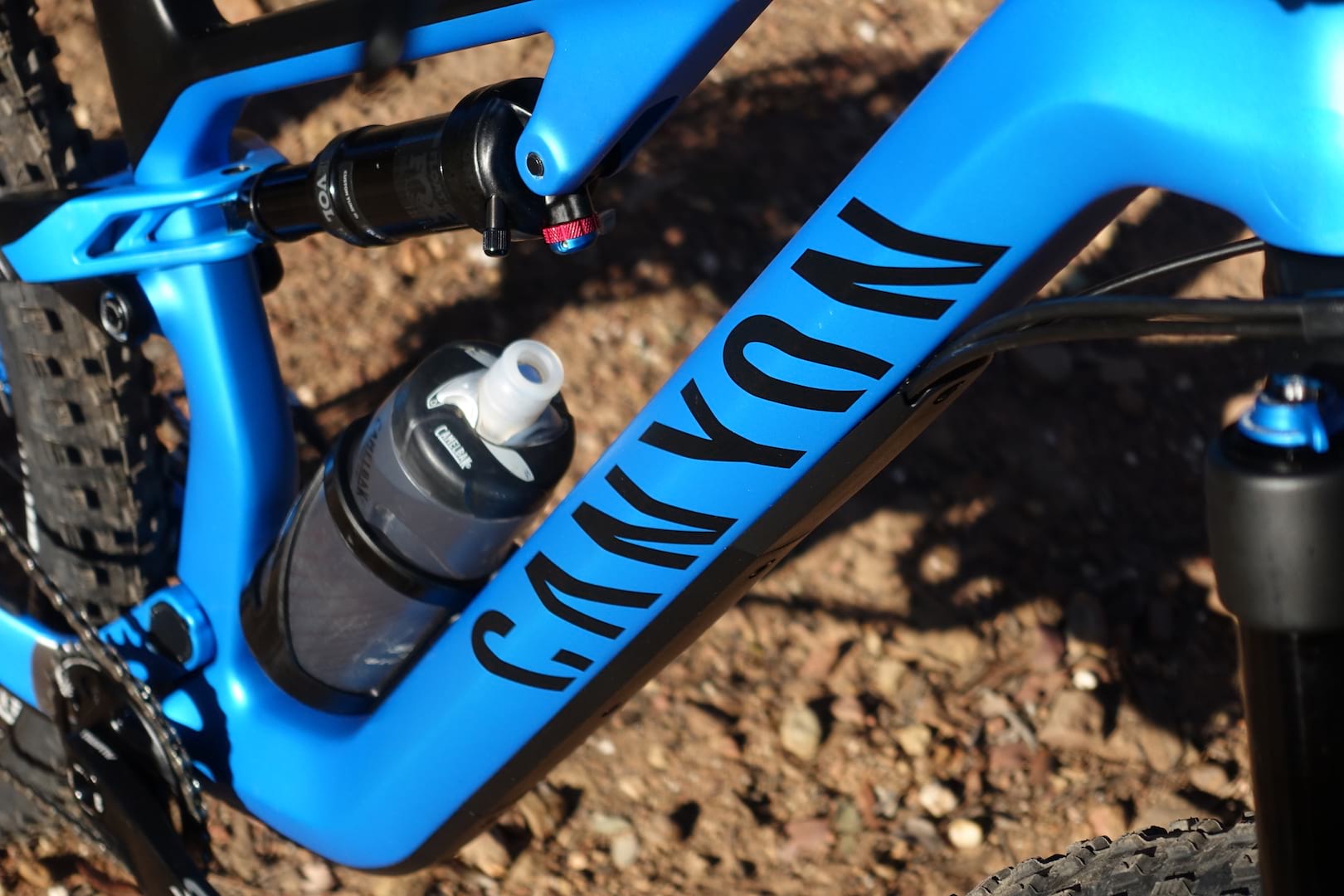
Joining the alloy Neuron (a bike that was updated a little over a month ago), the Neuron CF shares the same suspension travel, wheelsize and virtually the same geometry. The big difference between the two bikes is the full carbon fibre frameset, as well as the new Triple Phase Suspension design that Canyon has been busy trickling down through its full suspension lineup. You’ll have seen this design on other Canyon models such as the Sender, Torque, Spectral and Lux.
Latest Singletrack Merch
Buying and wearing our sustainable merch is another great way to support Singletrack
Daz went along to the launch of the new 2019 Neuron CF, and you can read his first ride report here. Continuing where Daz left off, we’ve just received a Neuron CF for a longer term test to give it a proper shakedown on some less exotic, but more familiar singletrack.
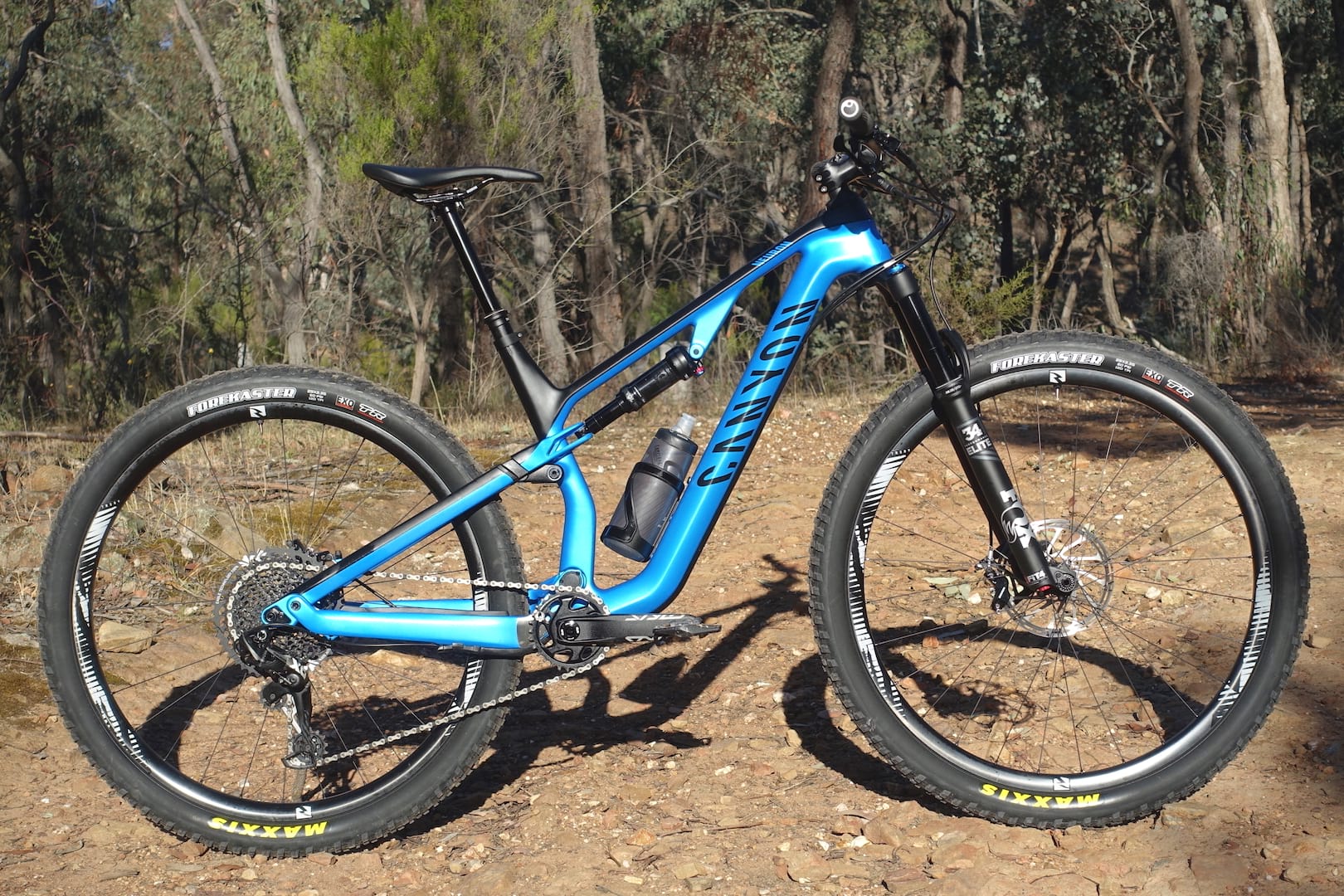
The bike we’ve got on test here is the Neuron CF 9.0 SL, which sits smack-bang in the middle of the range. All the Neuron CF’s share the same carbon fibre frame, and strap different components to it to offer five distinct price points.
2019 Canyon Neuron CF 9.0 SL Features
- Full carbon fibre mainframe & swingarm w/injection moulded shock extension
- 130mm travel Fox 34 Float Performance Elite FIT4 fork
- 130mm rear travel via Fox Float DPS Performance Elite rear shock
- Reynolds TR309 carbon wheels, 30mm internal rim width
- Maxxis Forekaster EXO 2.35in tyres
- SRAM GX/X01 1×12 drivetrain
- SRAM Guide R disc brakes
- Fox Transfer dropper post
- Available sizes: X-Small, Small, Medium, Large, X-Large
- Confirmed weight: 12.56 kg / 27.63 lb
- Complete bike RRP: $5,399 AUD / £3,349
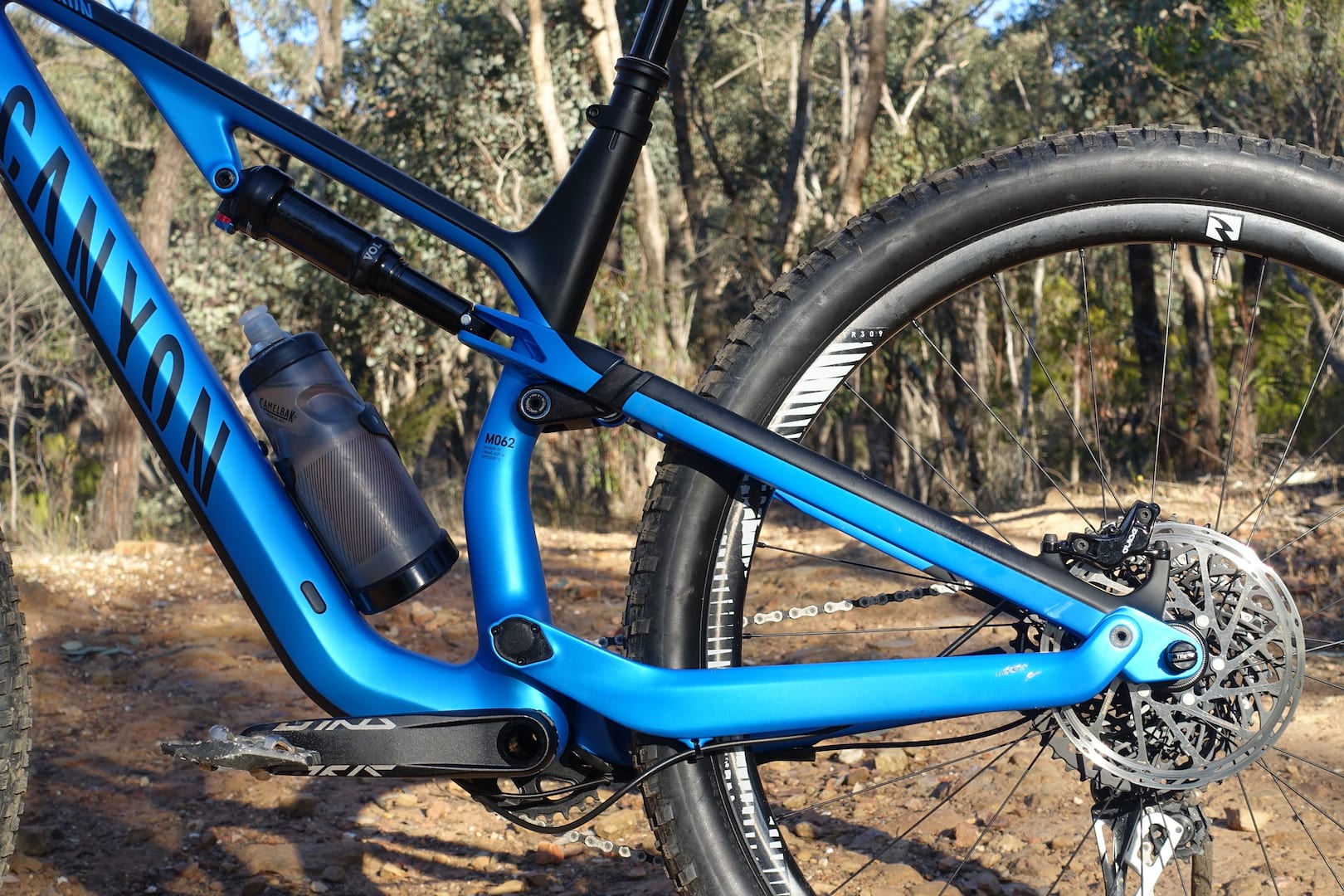
The biggest visual difference compared to the alloy Neuron is the use of the Triple Phase Suspension design on the Neuron CF. This is a four-bar suspension platform that sees a rearward pivot located forward and just above the rear axle. A partially hidden rocker link (black) connects the upper seatstay to the back of the seat tube, while an injection-moulded shock yoke then connects the black rocker link to the lower eyelet of the rear shock.
According to Canyon, the goal of the Triple Phase Suspension is to separate the rear travel into three distinct phases;
- Sensitivity: The early part of the travel provides small-bump sensitivity for traction and comfort
- Stable: Around the sag point, the suspension design increases stability for pedalling efficiency
- Progressive: The last portion is designed to ramp-up to reduce heavy bottoming-out
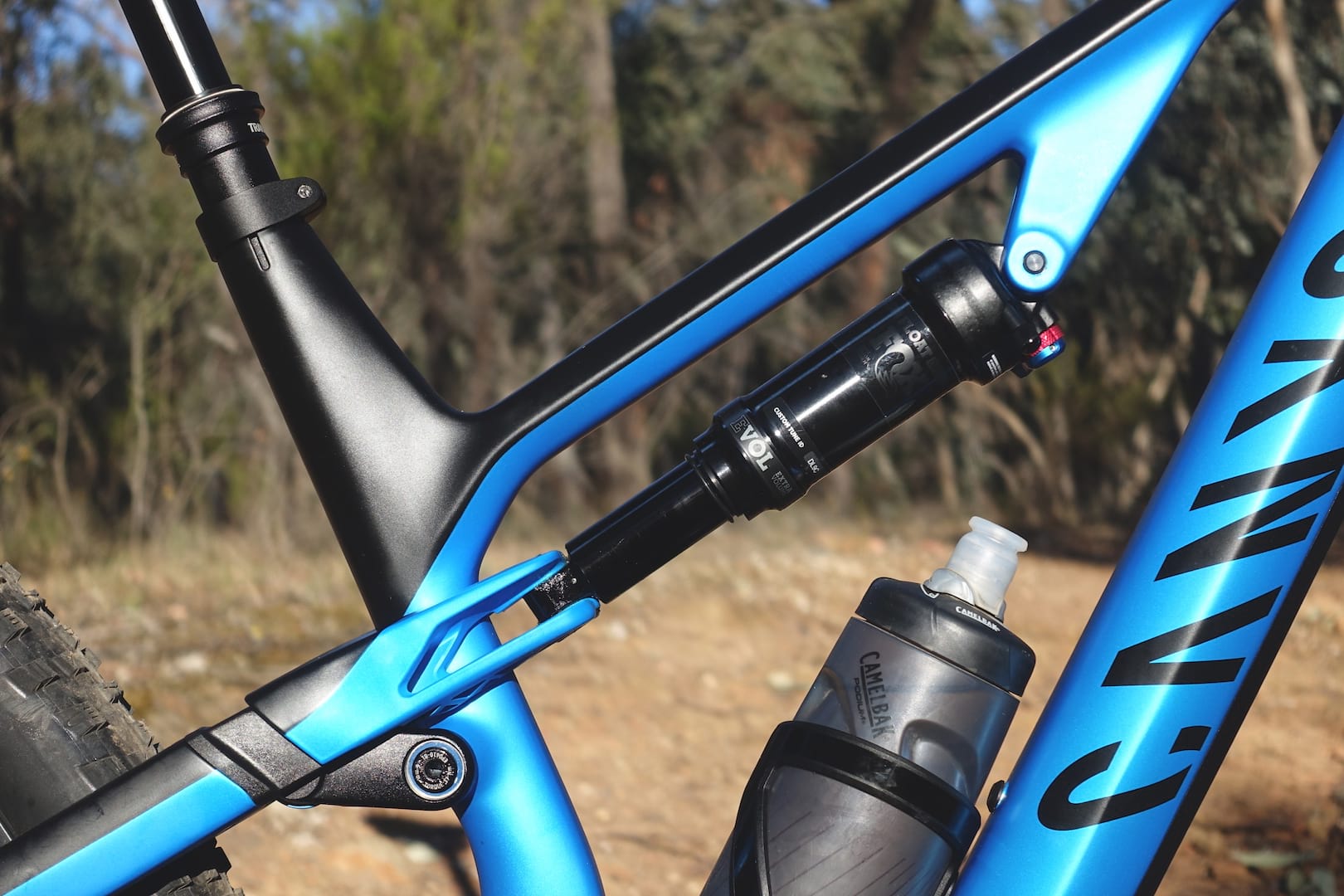
The rear shock is of the Metric variety, and sizes up at 210x50mm. That gives the Neuron CF an average leverage ratio of 2.6:1, which is reasonably low for a trail bike. Also of note is the custom tune – Canyon has given the Neuron CF both a light rebound and compression tune for the Float DPS shock, which comes with a large volume EVOL air can. The end of the shock is captured by an injection-moulded clevis, which rotates on two cartridge bearings. Theoretically, this should deliver a smoother actuation compared to using the shock’s DU bushing.
To keep the suspension setup consistent across the size range, the Small and X-Small frame sizes still feature the same amount of travel, but rely on unique kinematics and a smaller shock that will better support lighter riders.
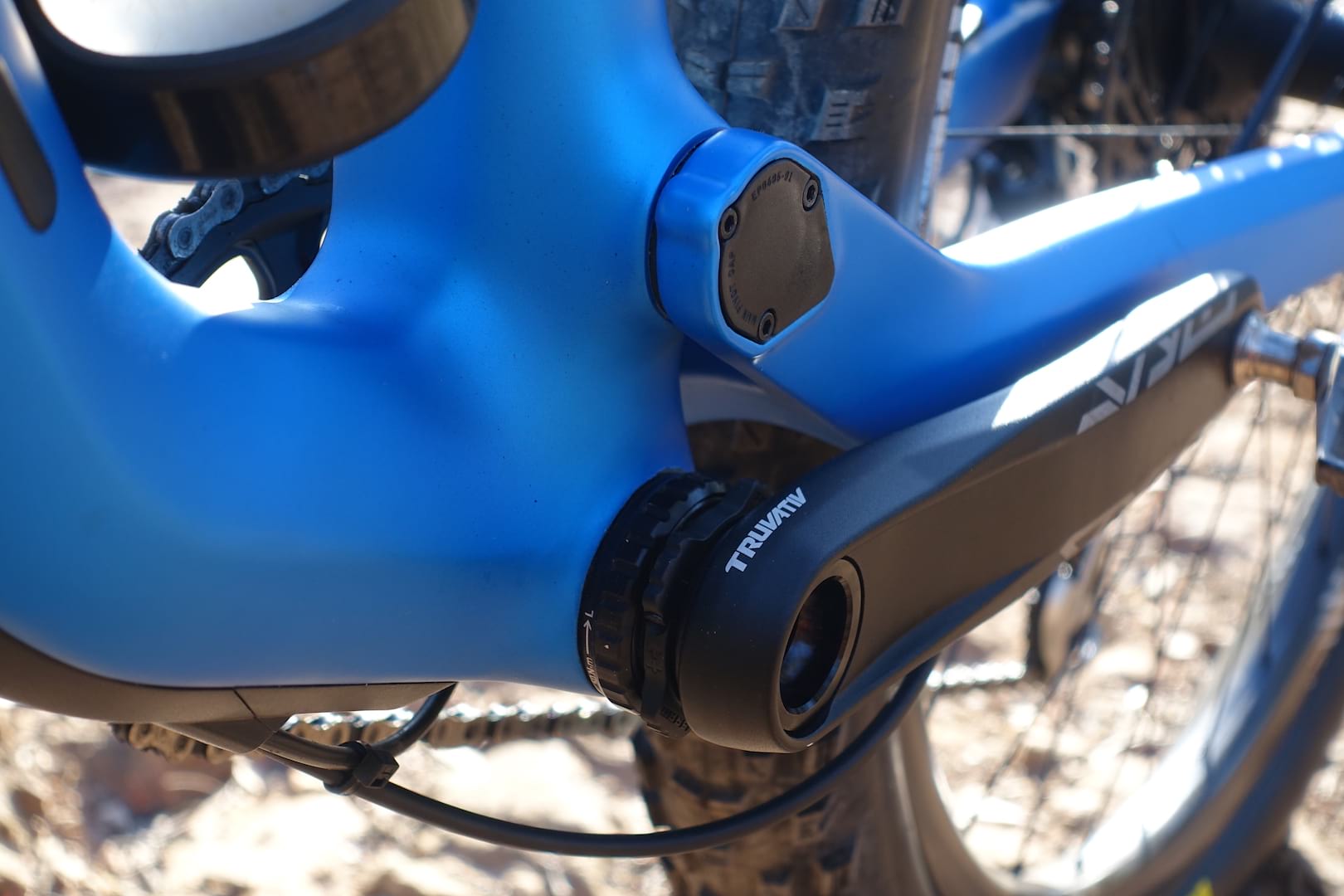
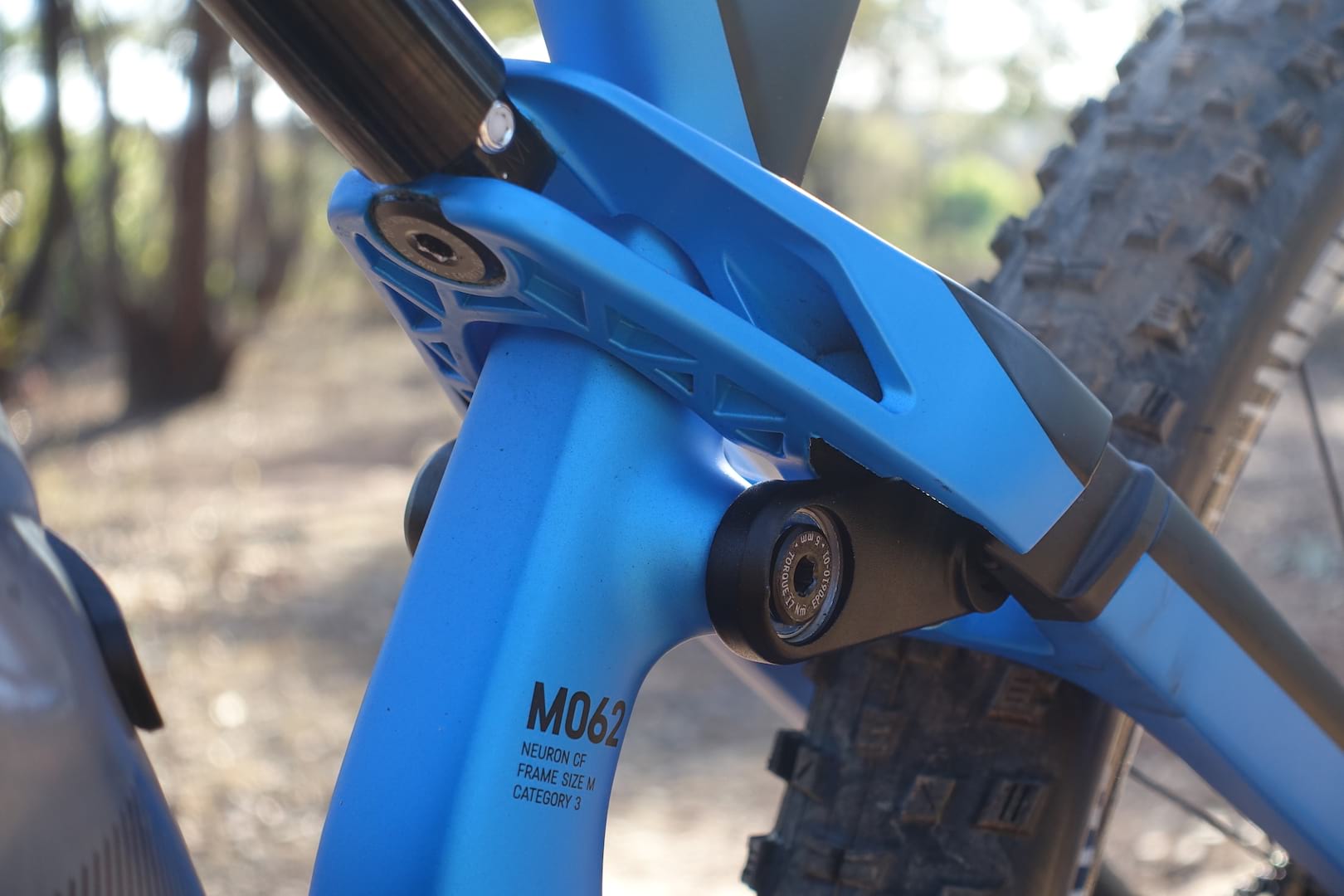
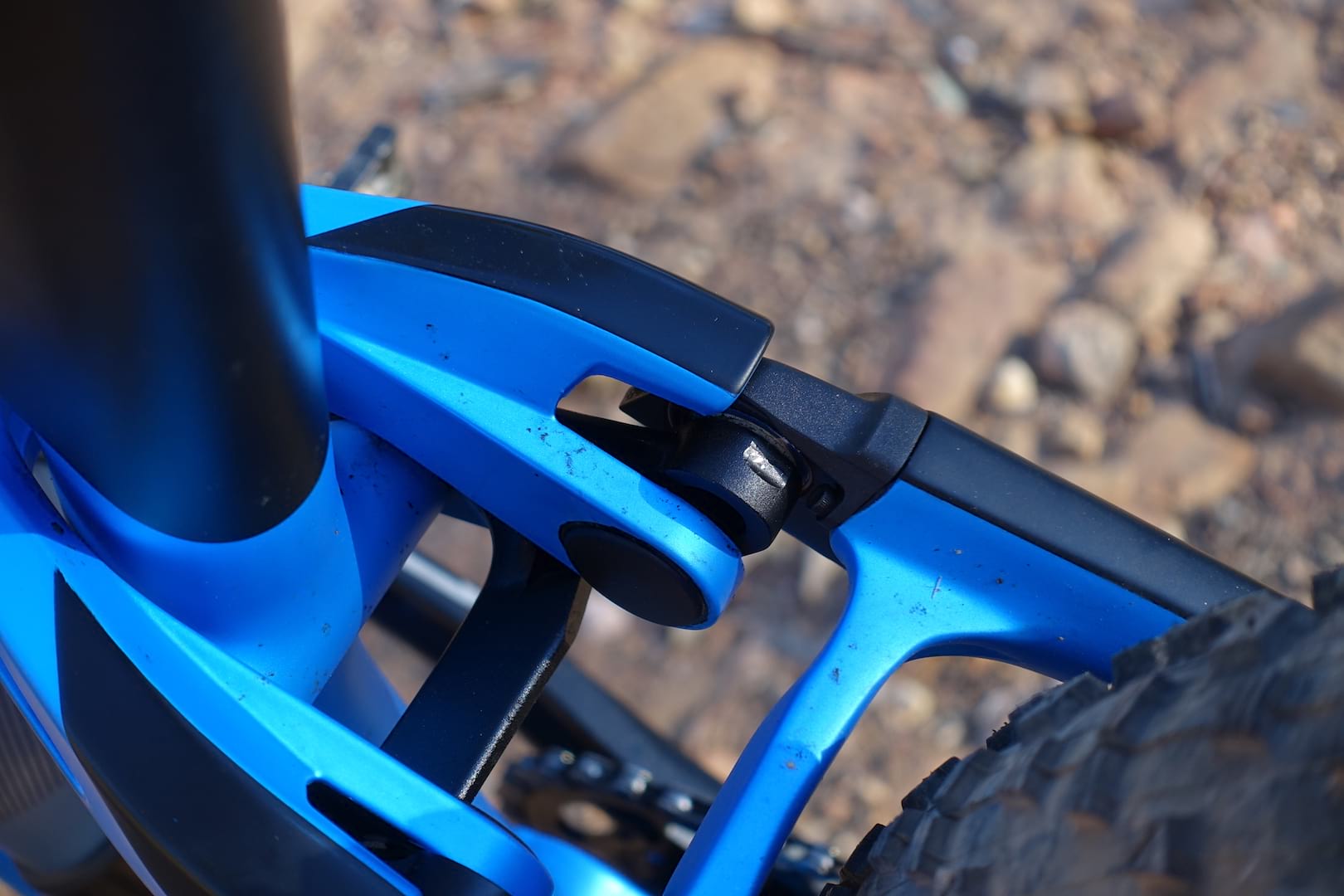
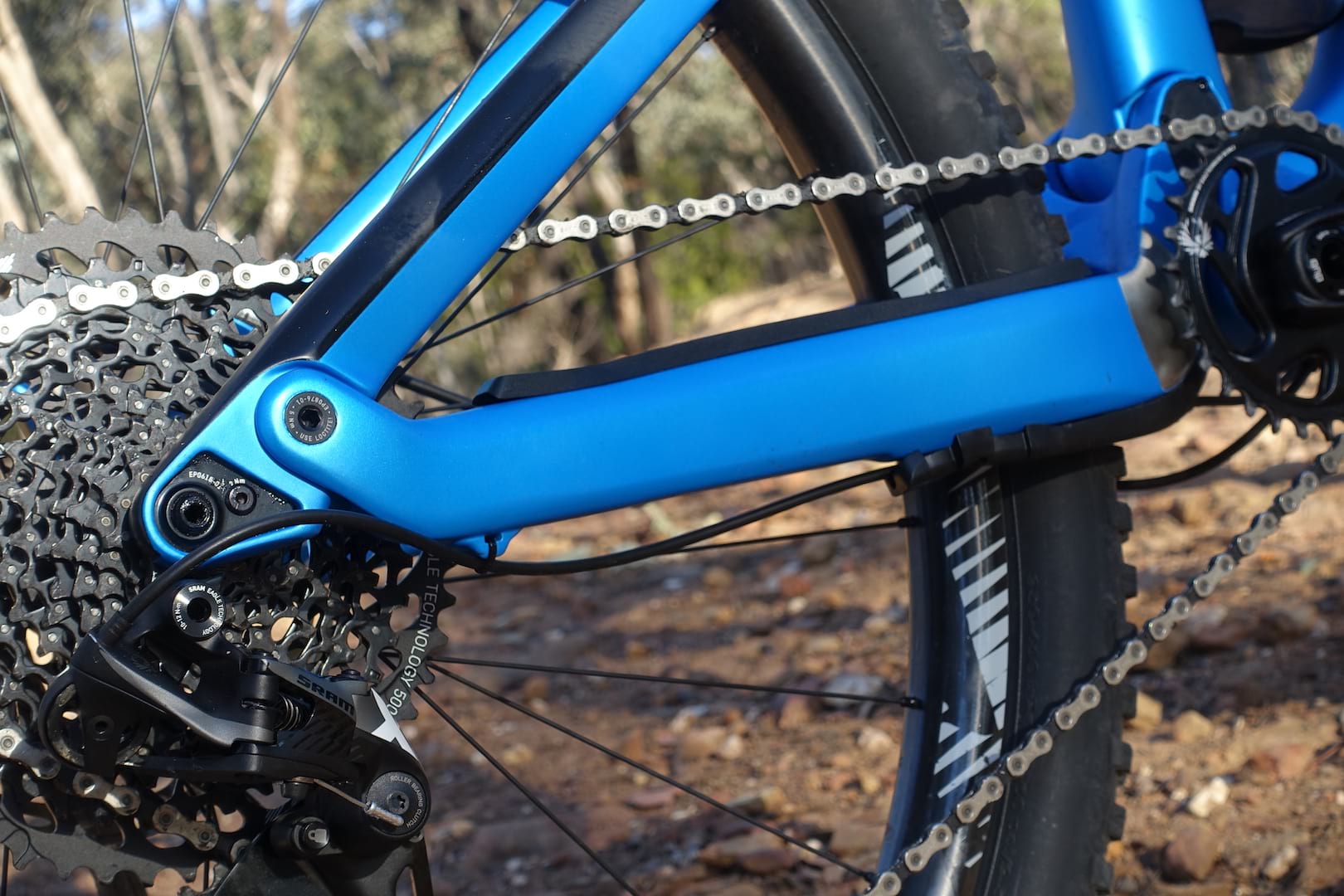
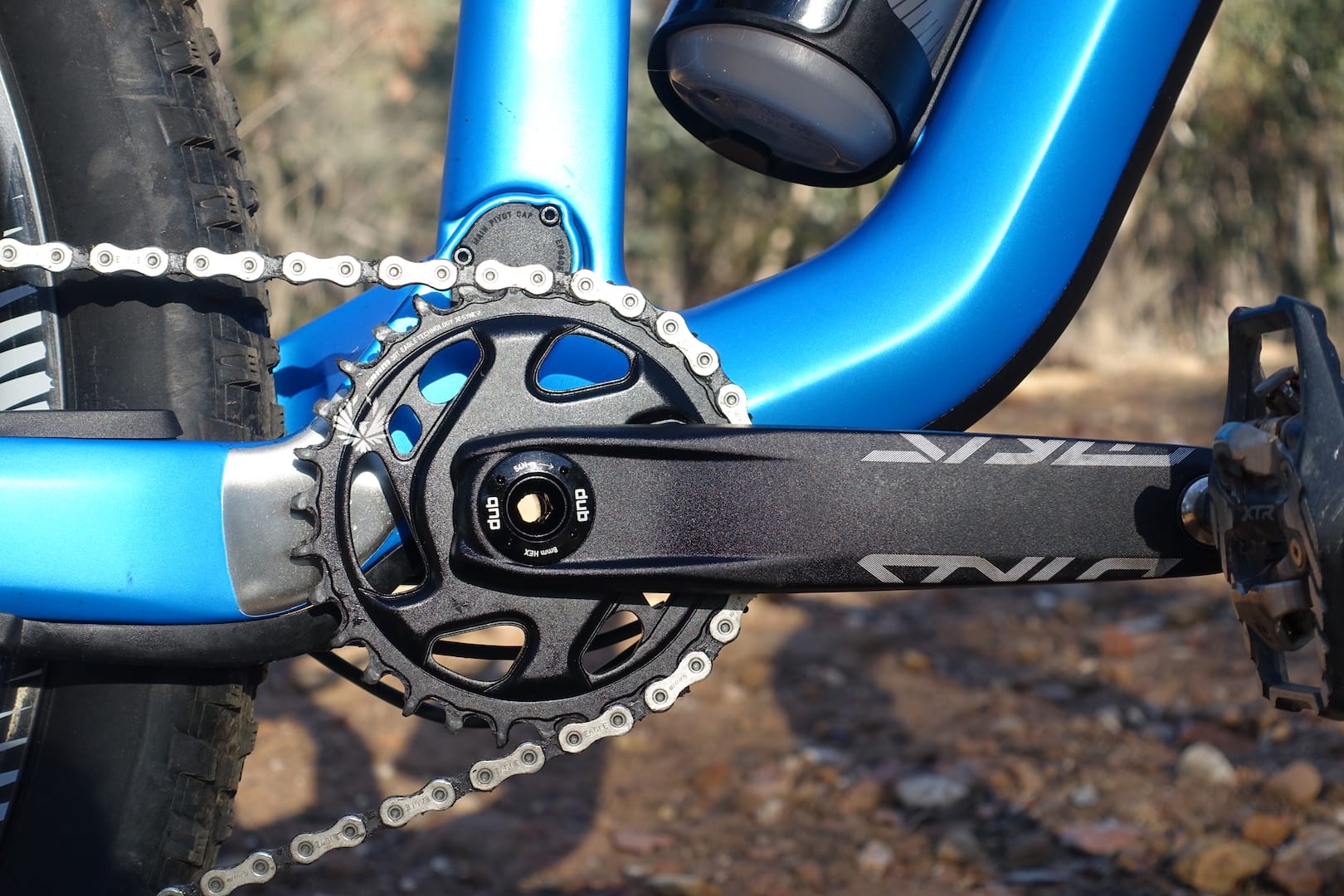
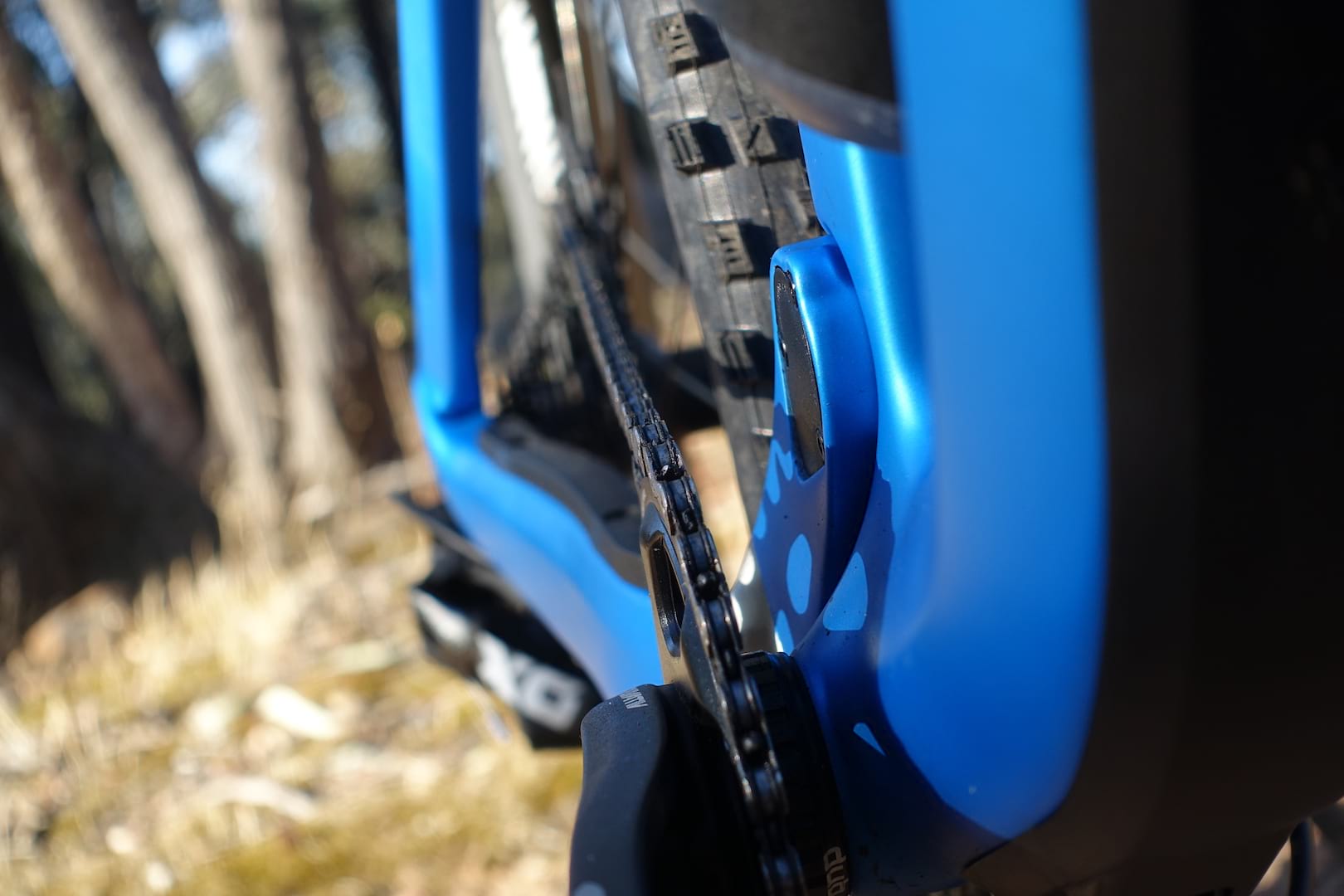
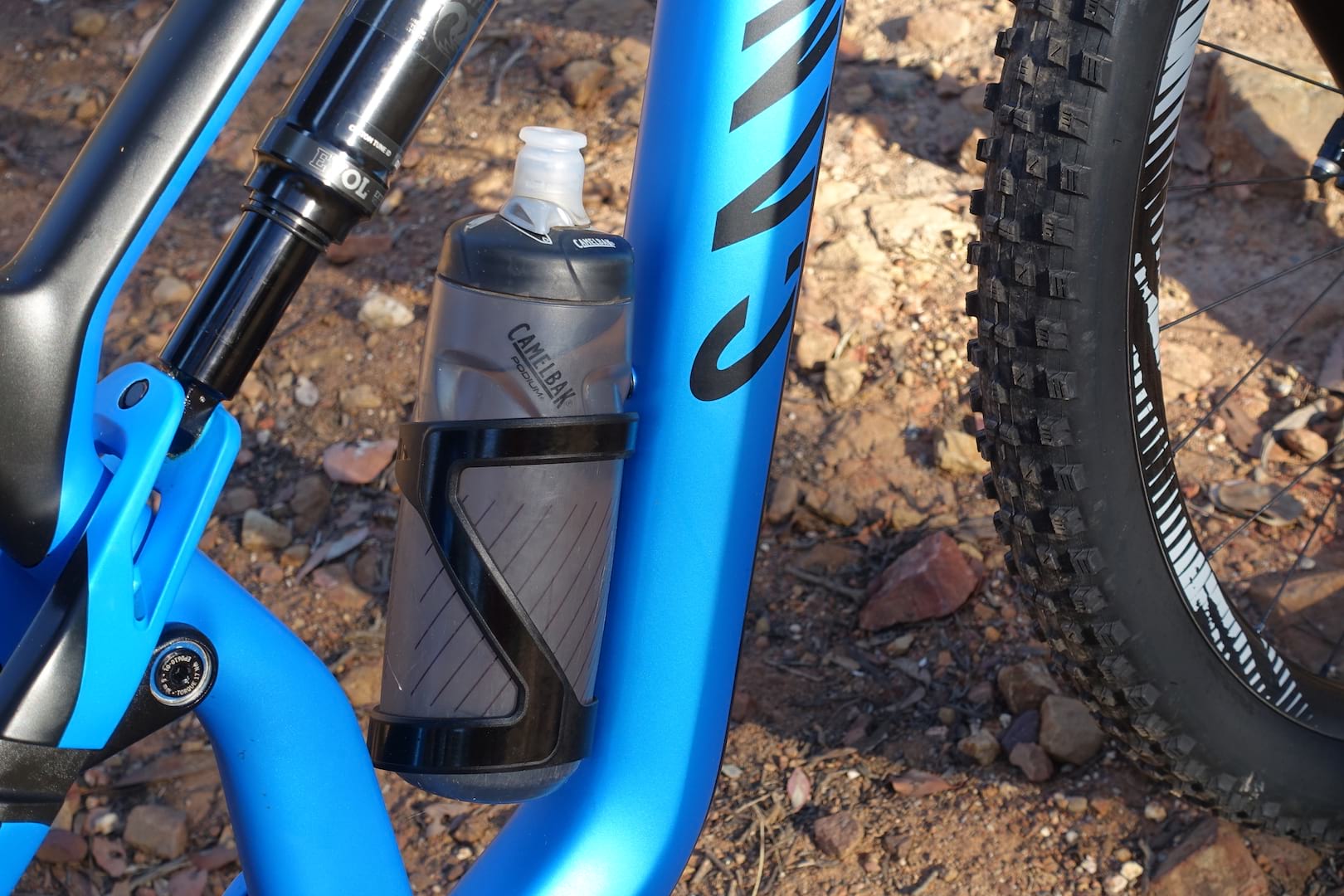
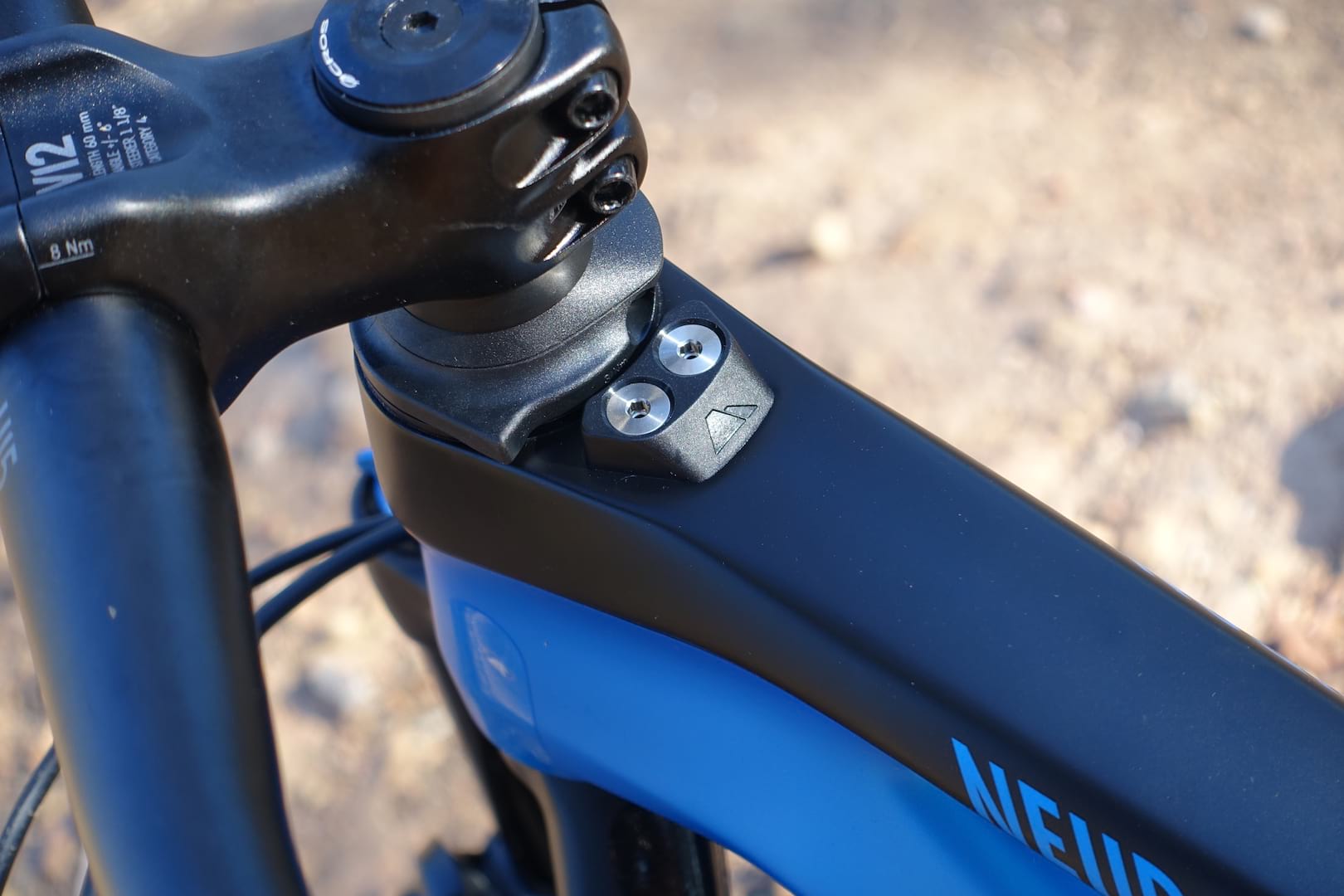
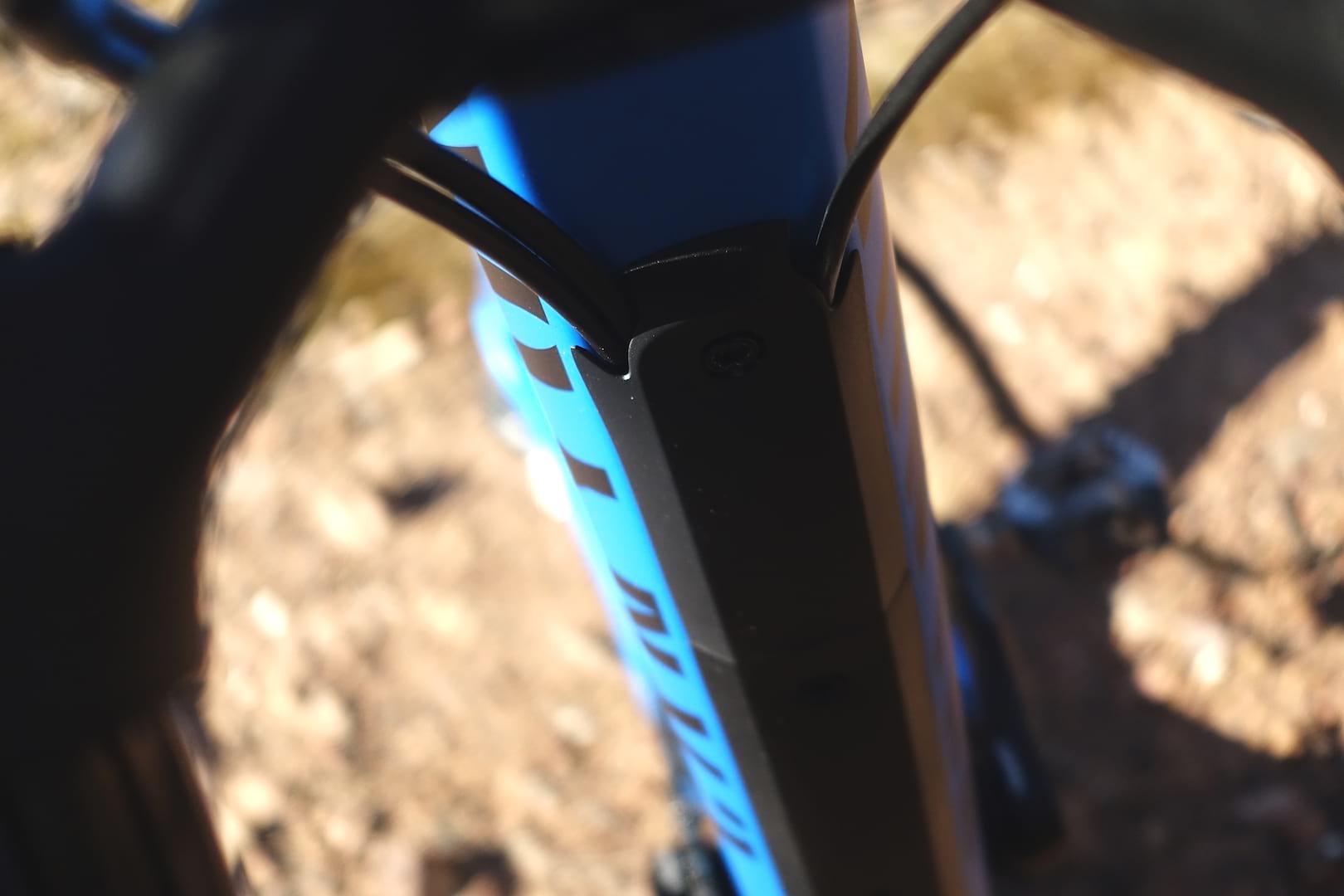
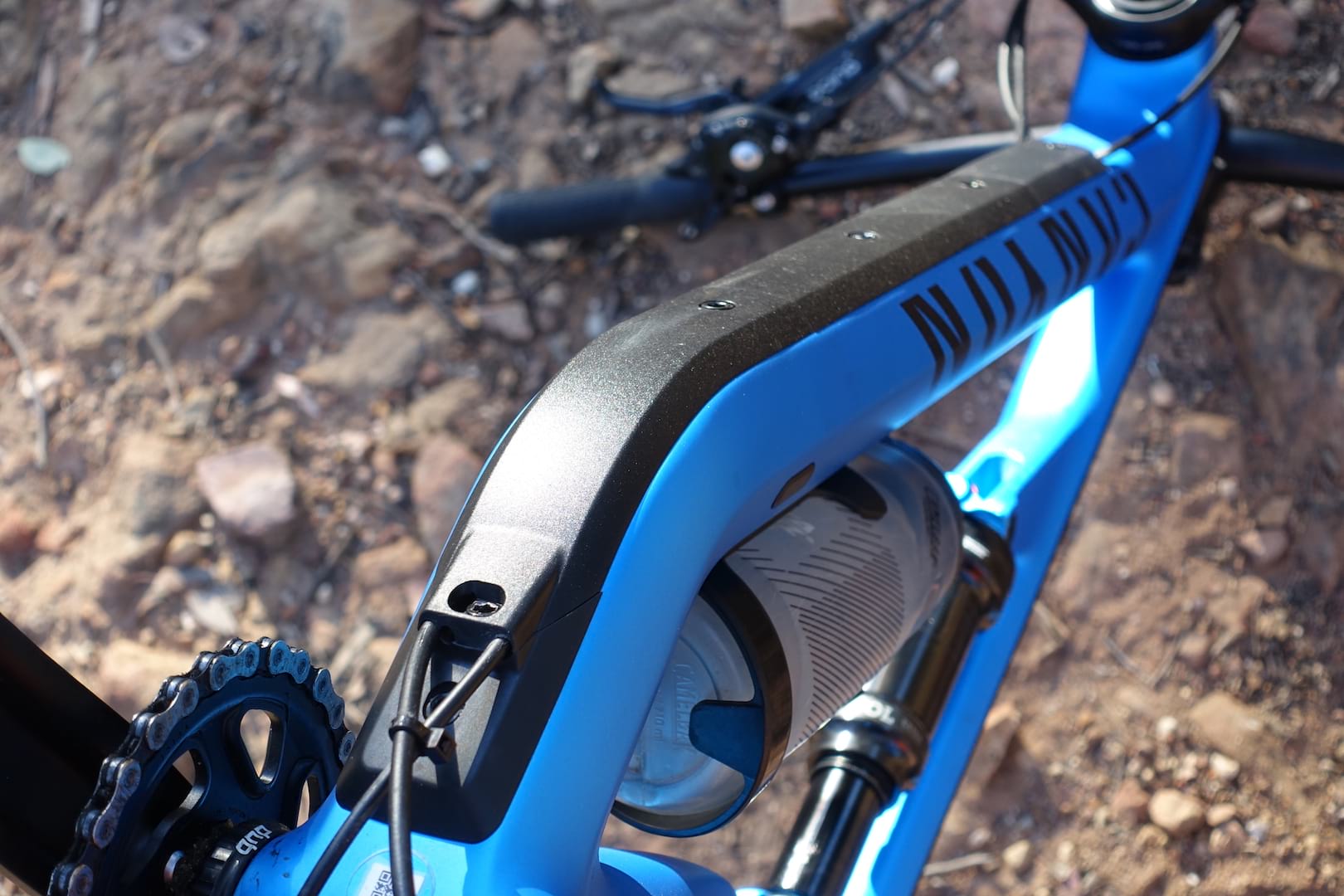
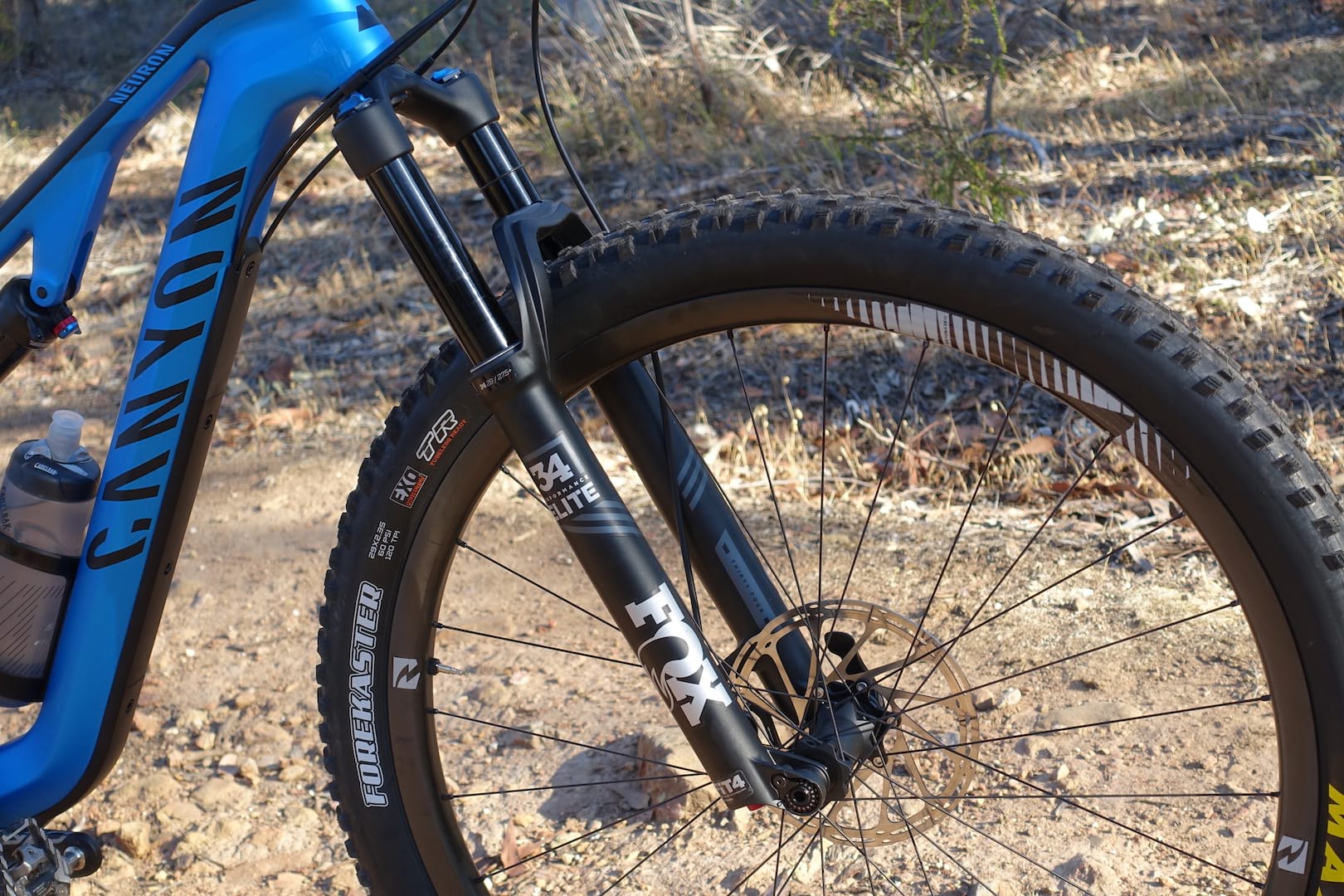
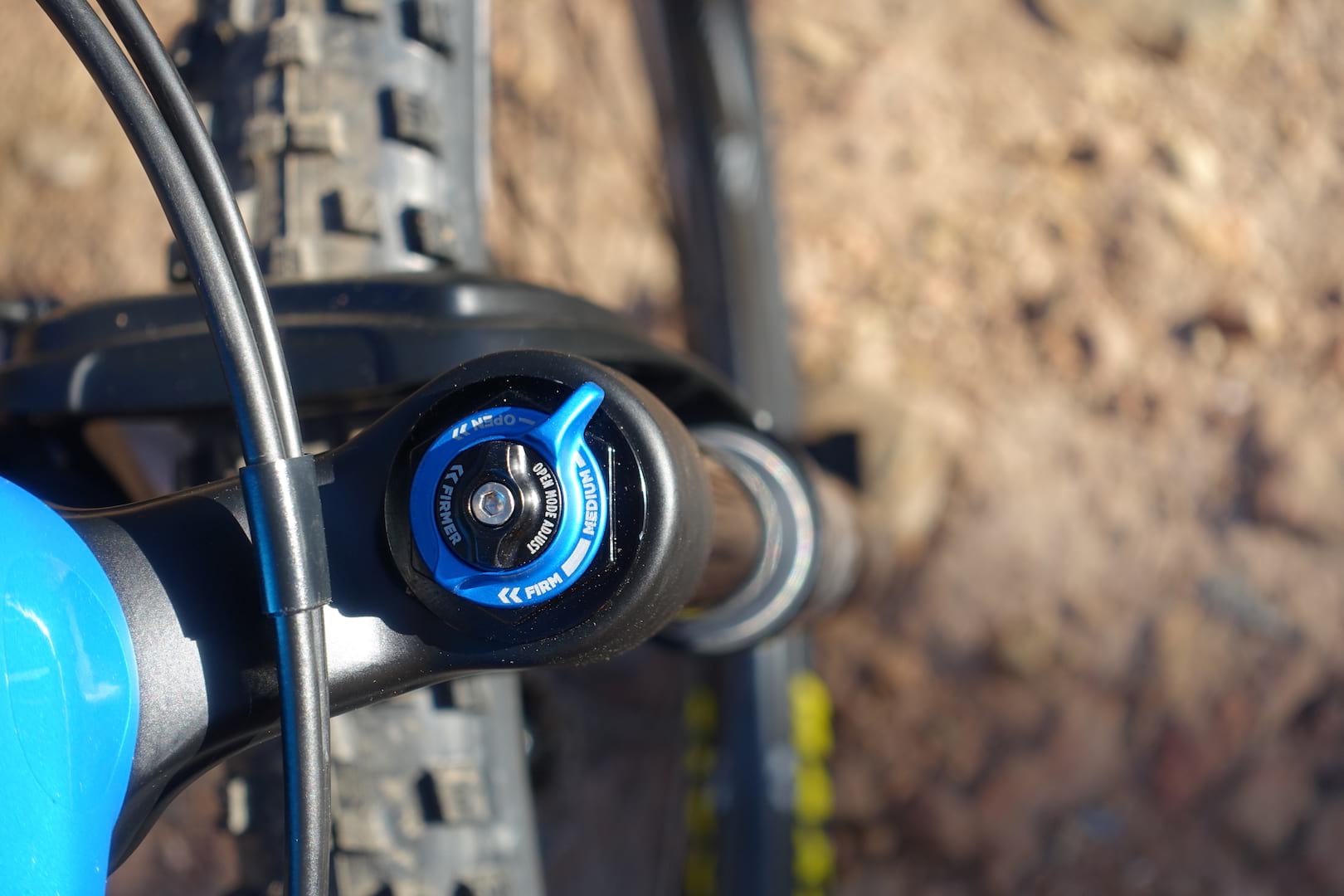
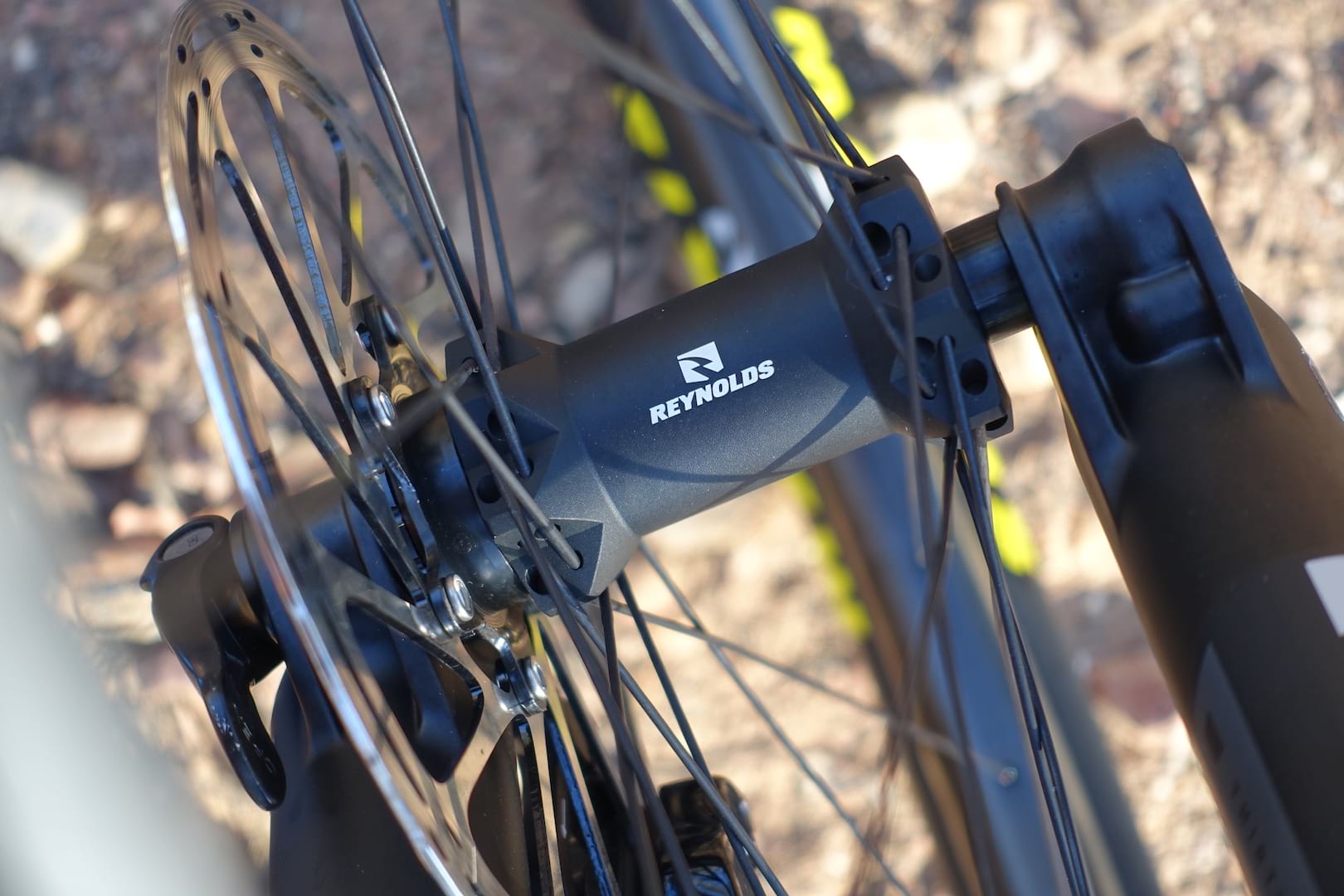
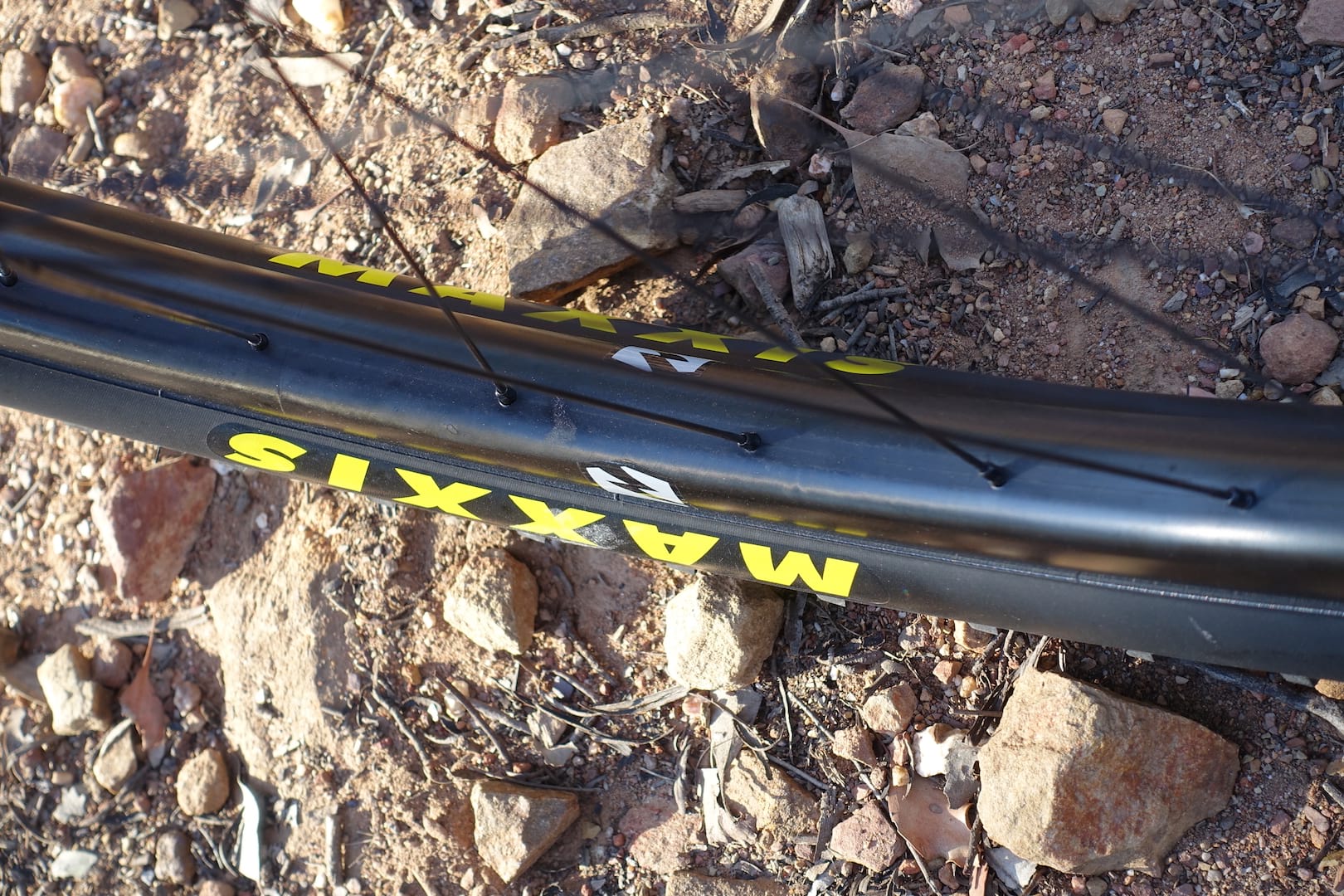
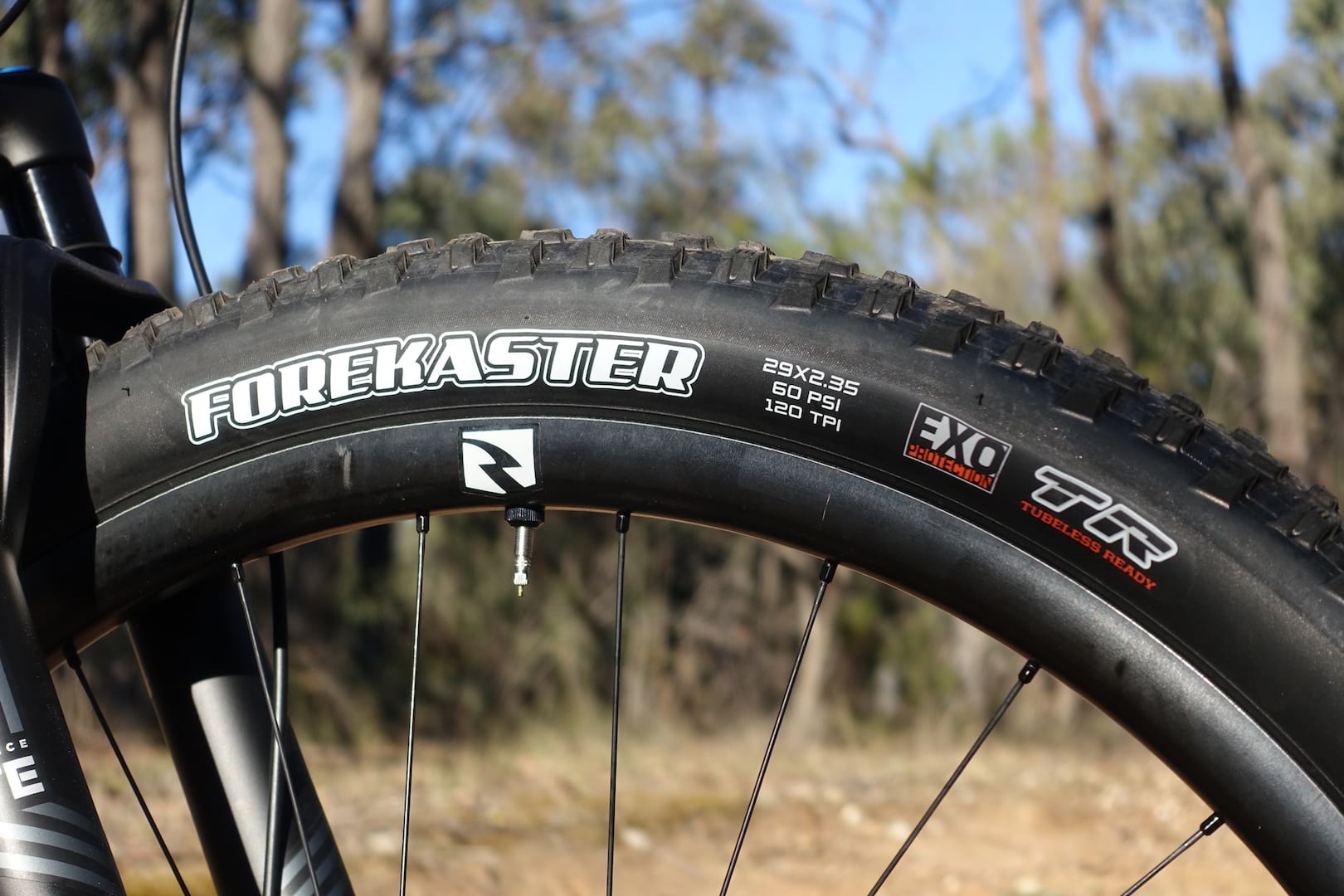
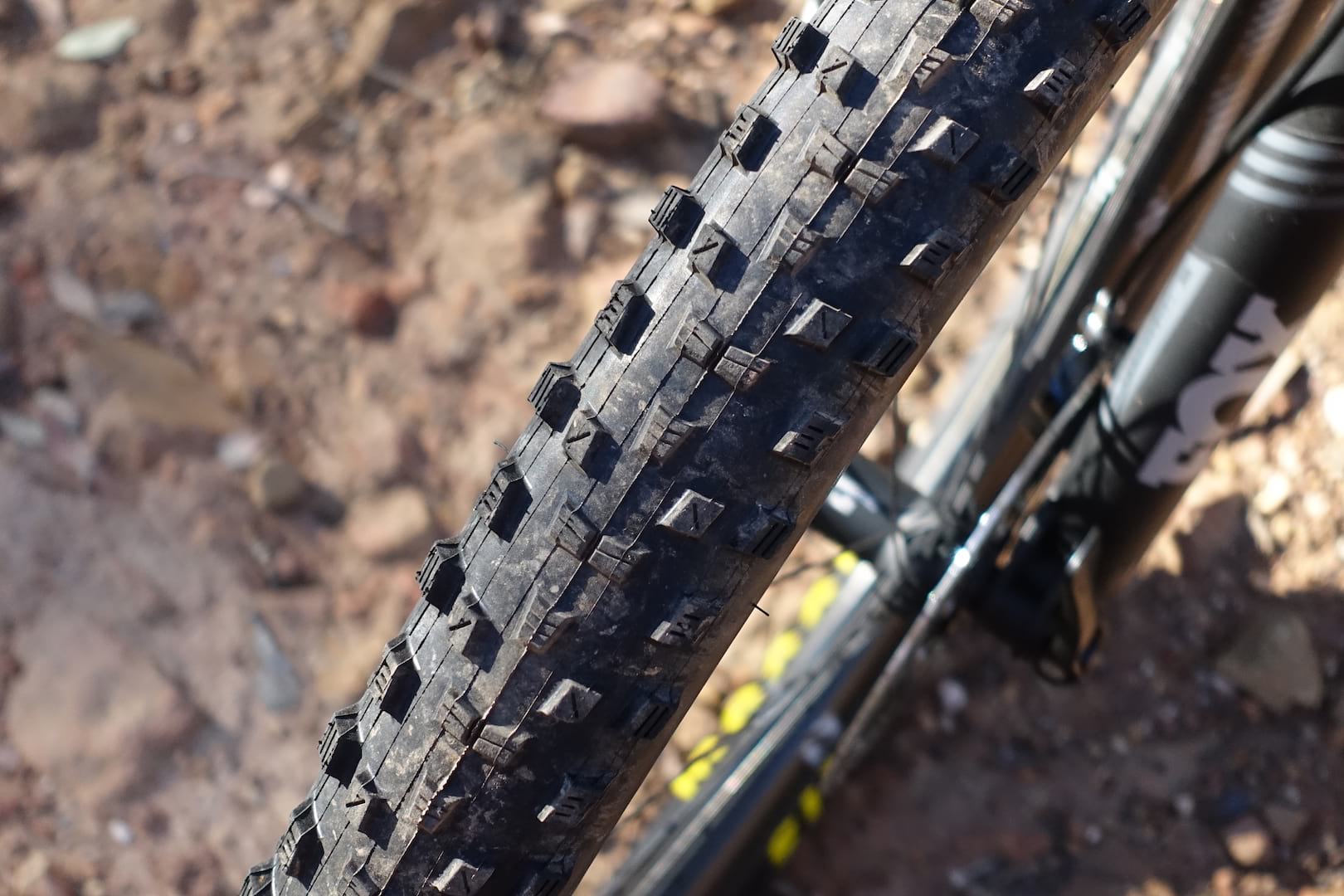
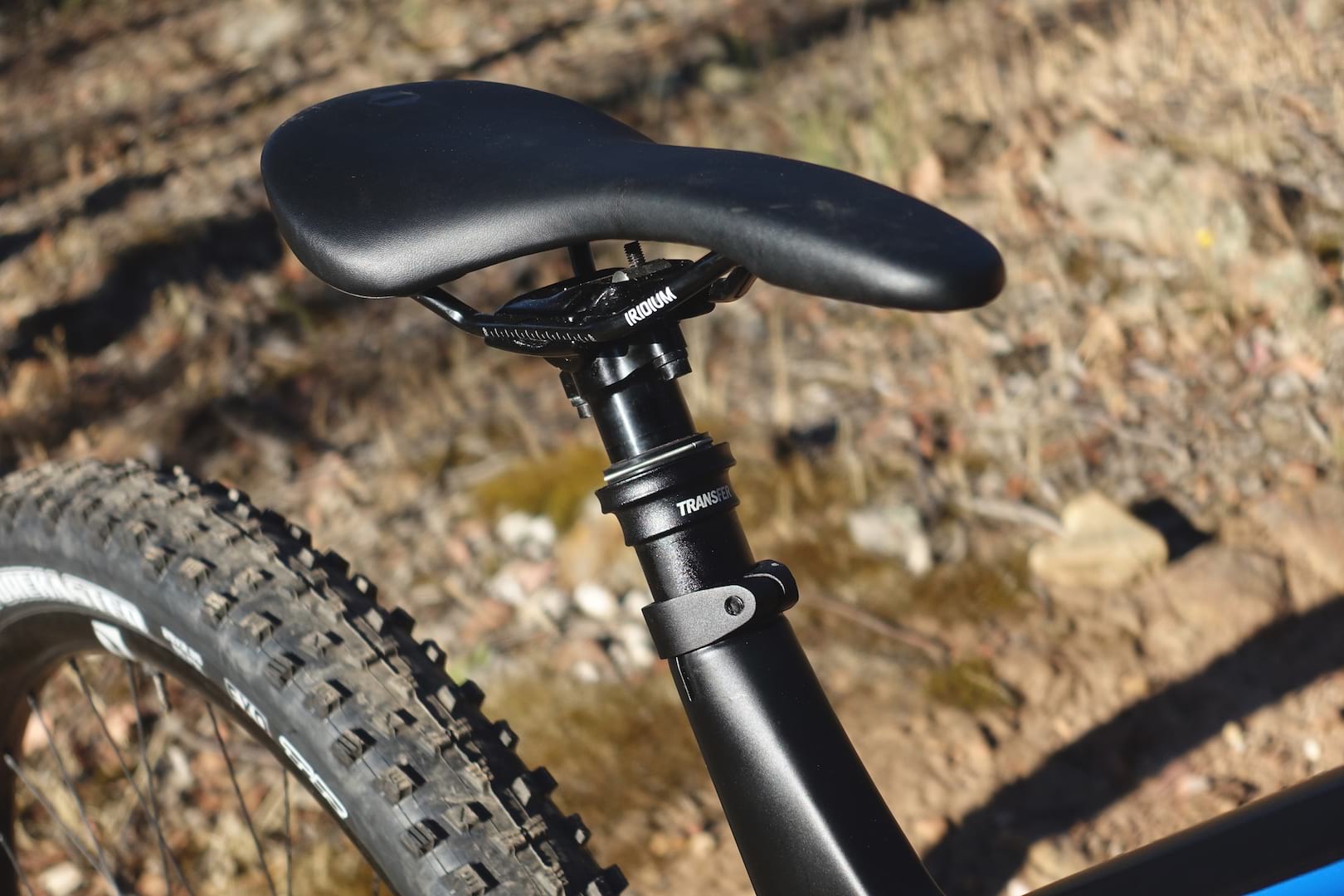
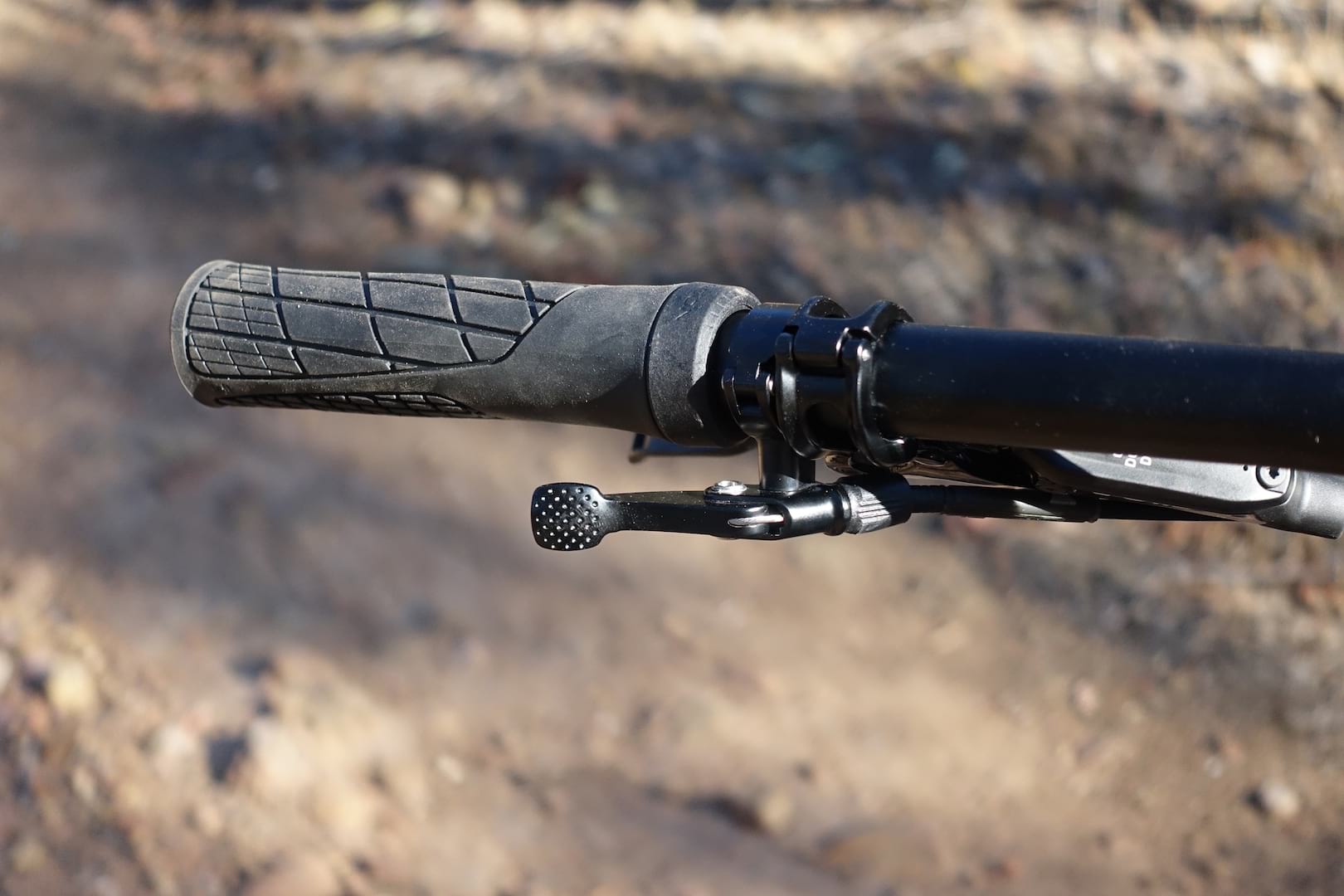
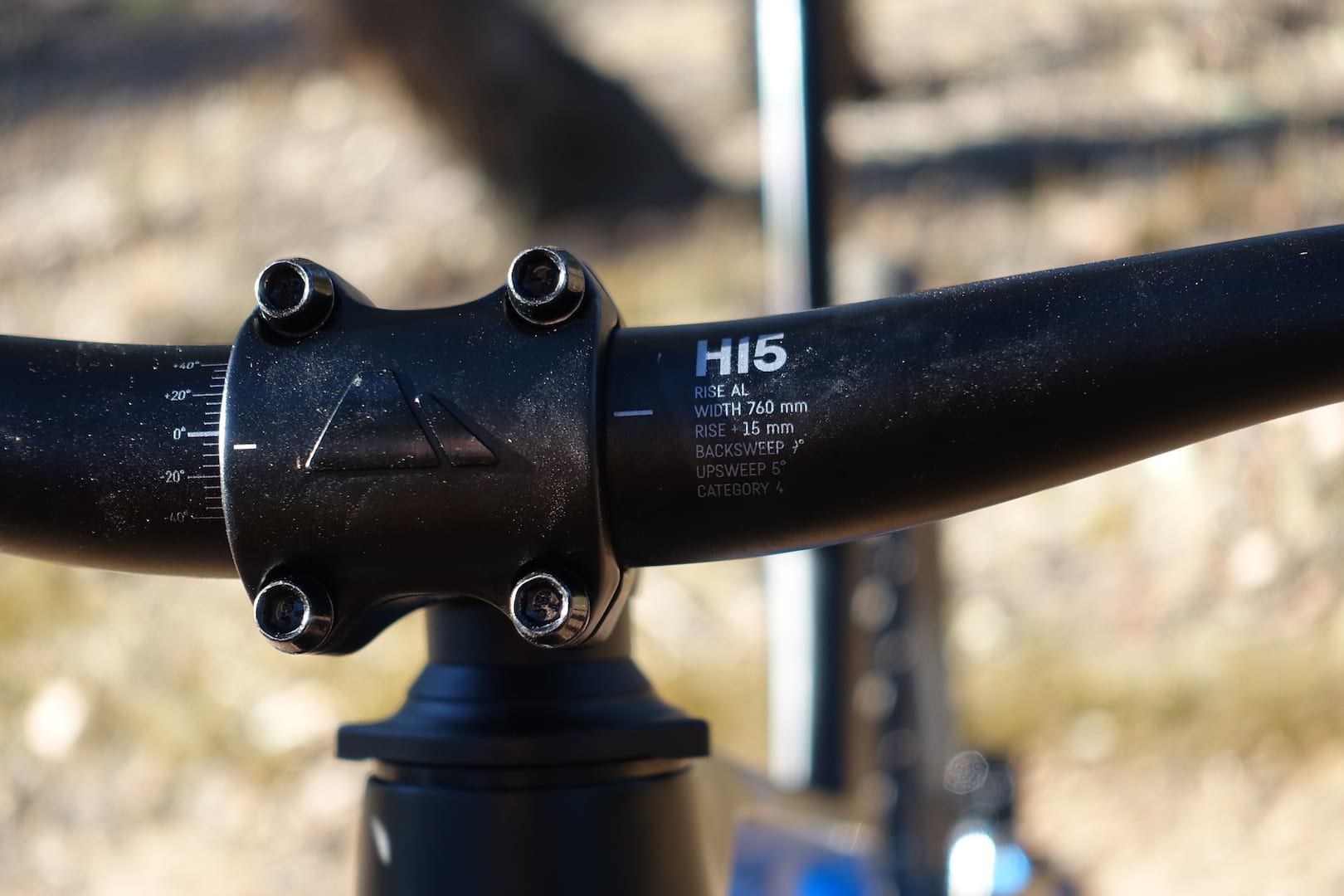
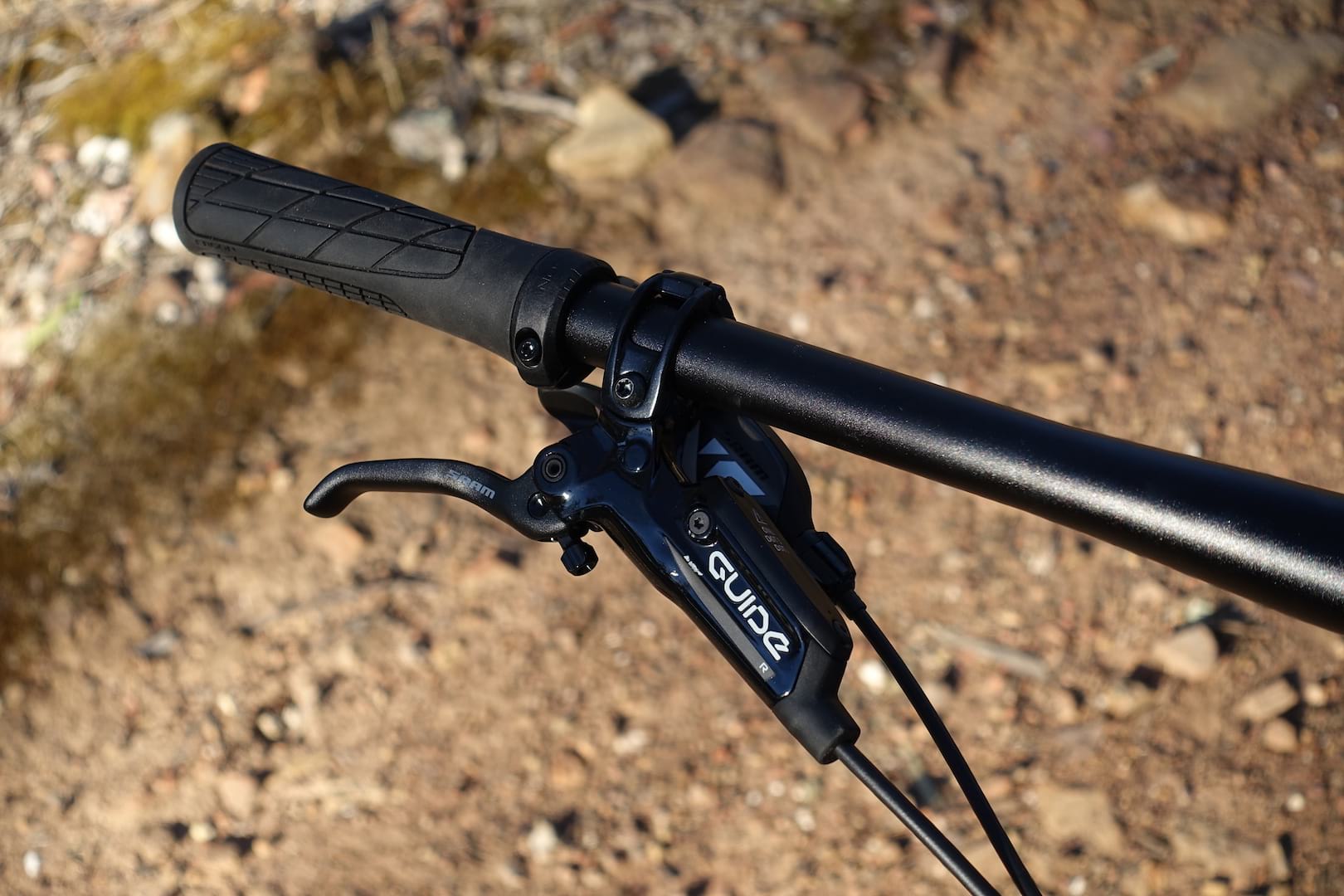
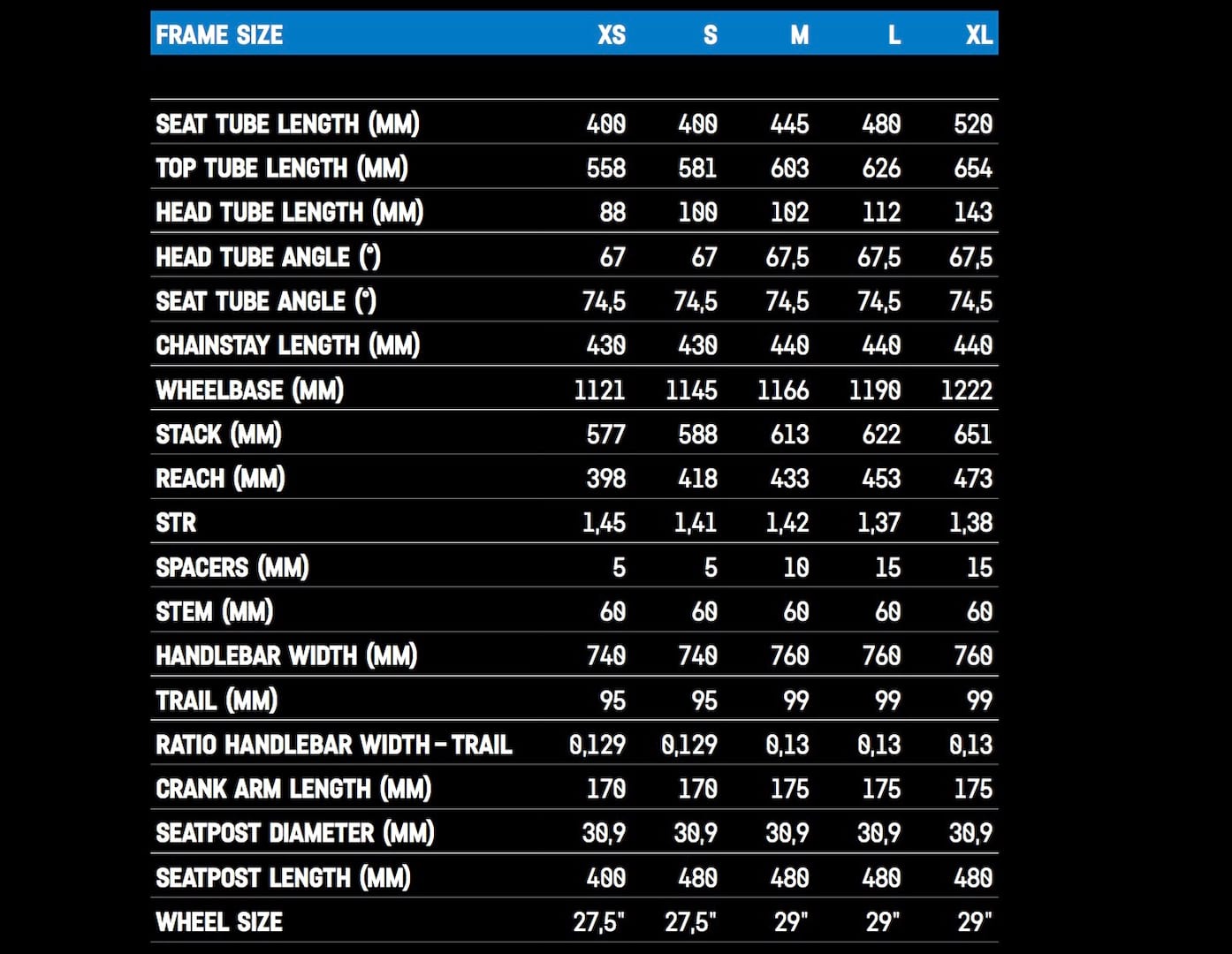
Consistent with Canyon’s approach with other full suspension models, the frame geometry on the new Neuron CF isn’t as radical as some other bikes within this travel bracket. The GT Sensor and Trek Fuel EX are two 130mm travel trail bikes that are notably slacker in the head angle, and longer in the reach compared to the Neuron.
However, Canyon has stated firmly that it hasn’t created a hooligan bike in the Neuron – this isn’t meant to be an expert-only bike built for the Dudes Of Hazzard. Instead, it’s pitched as a more comfortable, pedal-friendly trail bike that’s pitched at a wider variety of riders and skill levels.
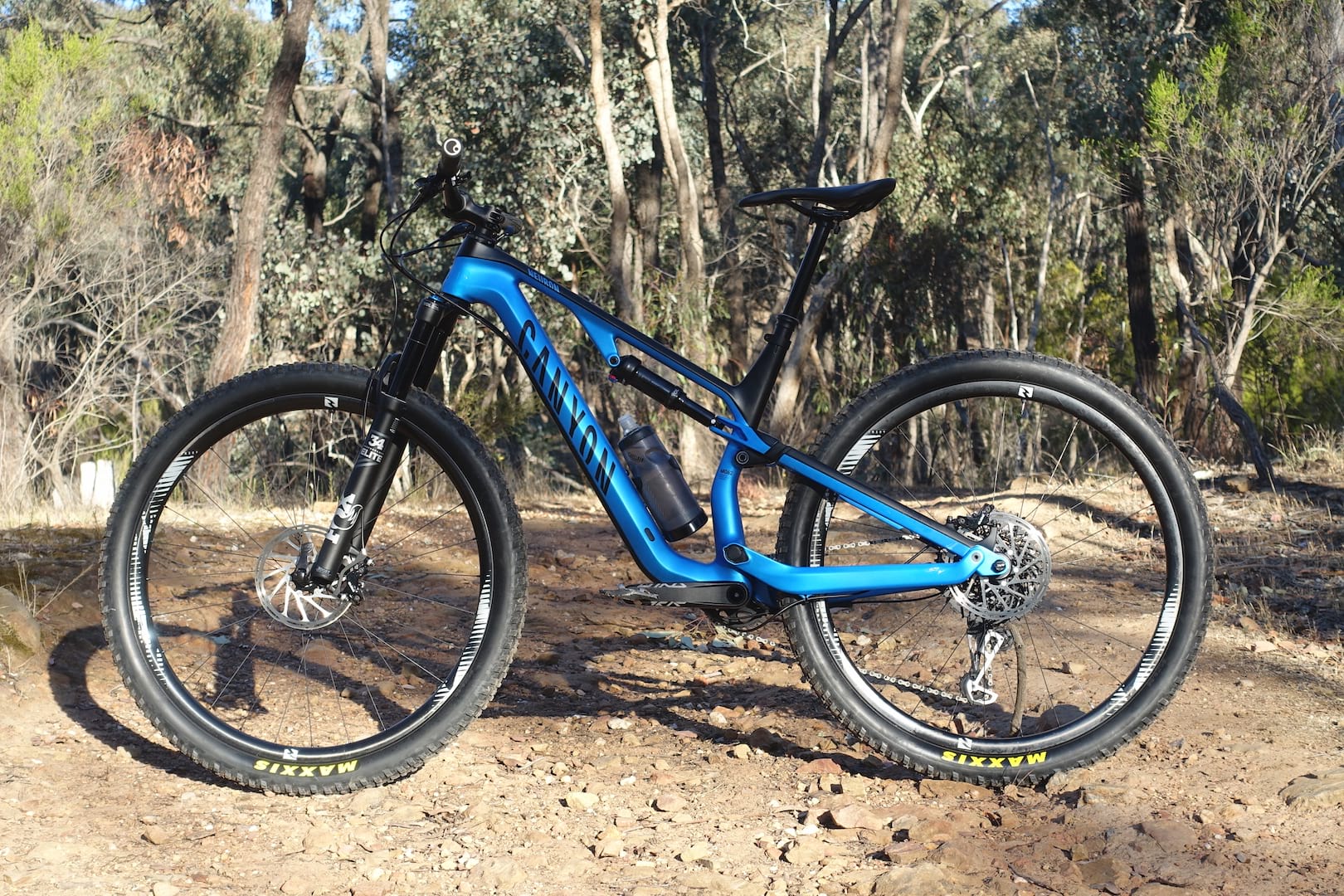
All together, it does add up to a pretty suave-looking bike that (as is typical for Canyon) is also well spec’d for the money. As to how it comes together on the trail? We’ll be putting this one through its paces over the coming weeks to bring you the full in-depth review.
In the meantime you can check out the full spec list below, or head to Canyon.com for more info. And if you’ve got any questions about the new Neuron CF, then let us know in the comments section below!
2019 Canyon Neuron CF 9.0 SL
- Frame // Carbon Fibre, 130mm Travel
- Fork // Fox 34 Float, Performance Elite, 51mm Offset, 130mm Travel
- Shock // Fox Float DPS, Performance Elite, EVOL Air Can, 210x50mm (195x45mm on XS, S sizes)
- Hubs // Reynolds TR3 Mountain Hub, 110x15mm Front & 148x12mm Rear
- Rims // Reynolds TR309 Carbon, 28h Front & Rear, 30mm Internal Rim Width
- Tyres // Maxxis Forekaster EXO 2.35in Front & Rear
- Chainset // SRAM Stylo 7K DUB, 30t Chainring
- Rear Mech // SRAM X01 Eagle, 12-Speed
- Shifter // SRAM X01 Eagle, 12-Speed
- Cassette // SRAM GX Eagle, 10-50t, 12-Speed
- Brakes // SRAM Guide R, 180mm Front & 160m Rear Rotors
- Bar // Canyon H15 Alloy , 15mm Rise 760mm Wide
- Stem // Canyon V12 Alloy, 60mm Long
- Grips // Ergon GA2, Lock-On
- Seatpost // Fox Transfer, Performance Elite, 150mm Travel
- Saddle // Iridium Trail
- Size Tested // Medium
- Sizes available // X-Small, Small, Medium, Large & Extra Large
- Claimed Weight // 12.56 kg (27.63 lbs)
- RRP // $5,399 AUD / £3,349
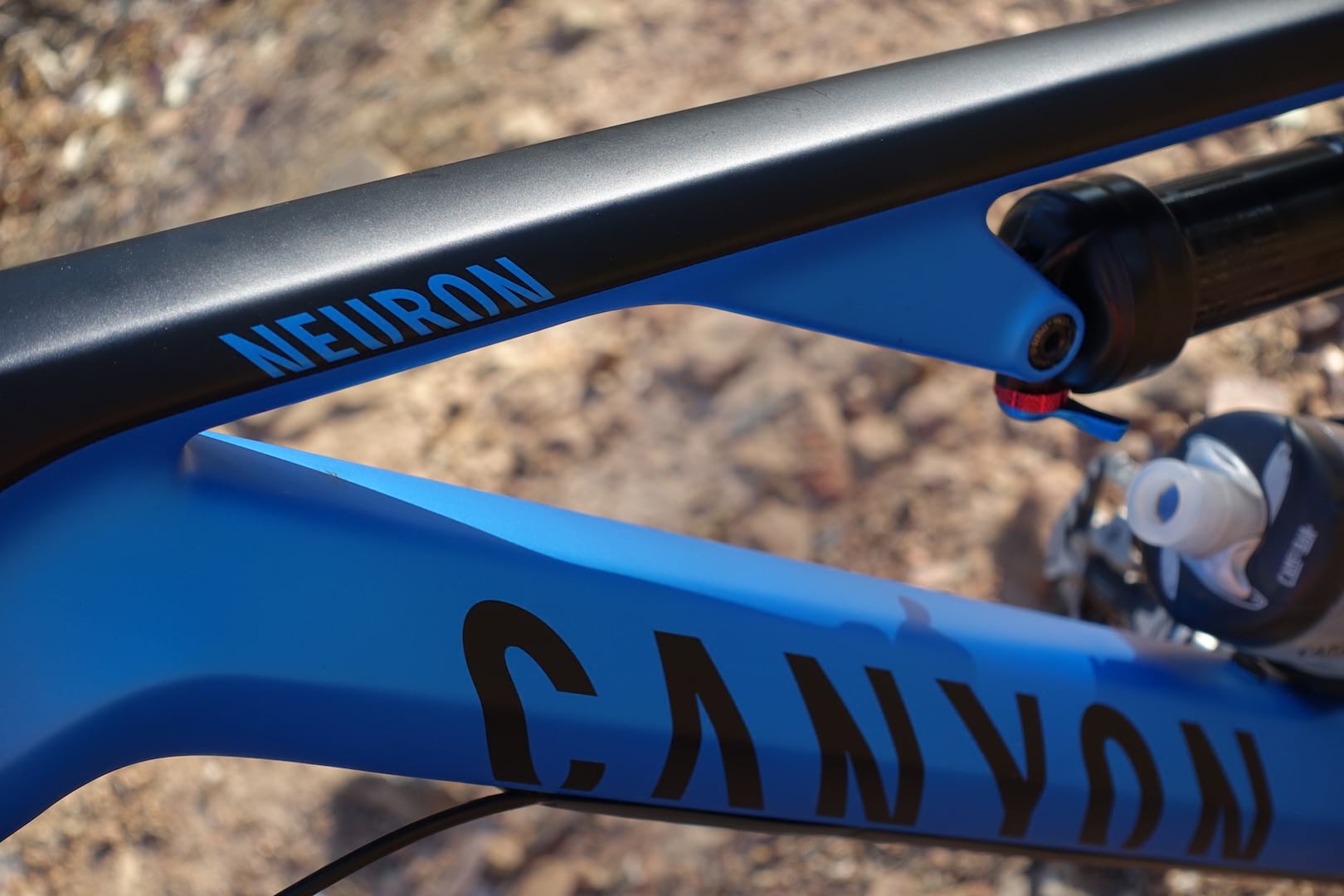




Hi Wil. It seems strange to me that the AL version is newly released but doesn’t have the Triple Phase suspension design – what are your thoughts on this? I don’t recall seeing a model of bike with different suspension designs between Al and Carbon before.
You said “The GT Sensor and Trek Fuel EX are two 130mm travel trail bikes that are notably slacker in the head angle…”. The Fuel EX’s head angle is either 67.0° or 67.7° (depending on the Mino link position) which falls either side of the Neuron’s 67.5° but it does have a longer reach.
@paulcd – It is pretty interesting, especially as Canyon released the 2019 Neuron AL only about 6 weeks before it released the new Neuron CF. Like you , I was surprised to see the alloy Neuron retain the same frame layout and suspension design as the previous iteration.
I would guess that this decision was likely cost related, or time pressures in getting both new alloy and carbon frames to release at the same time (Canyon has released A LOT of new bikes in the past 12 months!). Probably a bit of both.
In chatting with Canyon, it turns out that the shock rate on the 2019 Neuron AL is almost identical to the Neuron CF, which I find interesting given all the marketing speak around the Triple Phase Suspension platform. There are benefits to the new Triple Phase Suspension design, particularly with packaging and being able to deliver a low standover height and water bottle clearance in the mainframe. But according to Canyon, the suspension feel should be pretty similar between the two. Likewise, the geometry is almost identical between the two bikes. I might have to try and get my hands on a 2019 Neuron AL to make that comparison…
As for the Fuel EX, you’re spot-on that the current version is half a degree slacker in the Low position compared to the Neuron. The last EX I tested was a 2017 model, which was actually slacker at 66.5 degrees: https://singletrackworld.com/2017/03/review-trek-fuel-ex-9-29/
For anyone else reading this, be wary of Trek’s occasionally confusing geometry chart. A Medium Neuron CF is comparable to an 18.5in Fuel EX, which has a reach of 450mm – quite a bit more than the Neuron’s 433mm.
But, those are all just numbers on paper – I’m hoping to get my hands on either the Trek or GT to see how they compare on the trail to the Neuron CF. Stay tuned!
ST Wil.